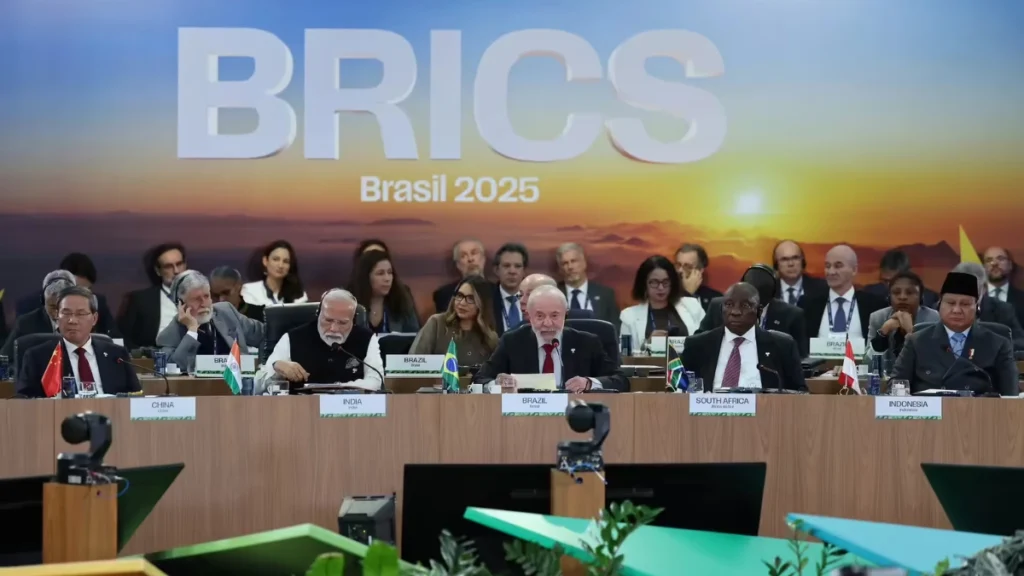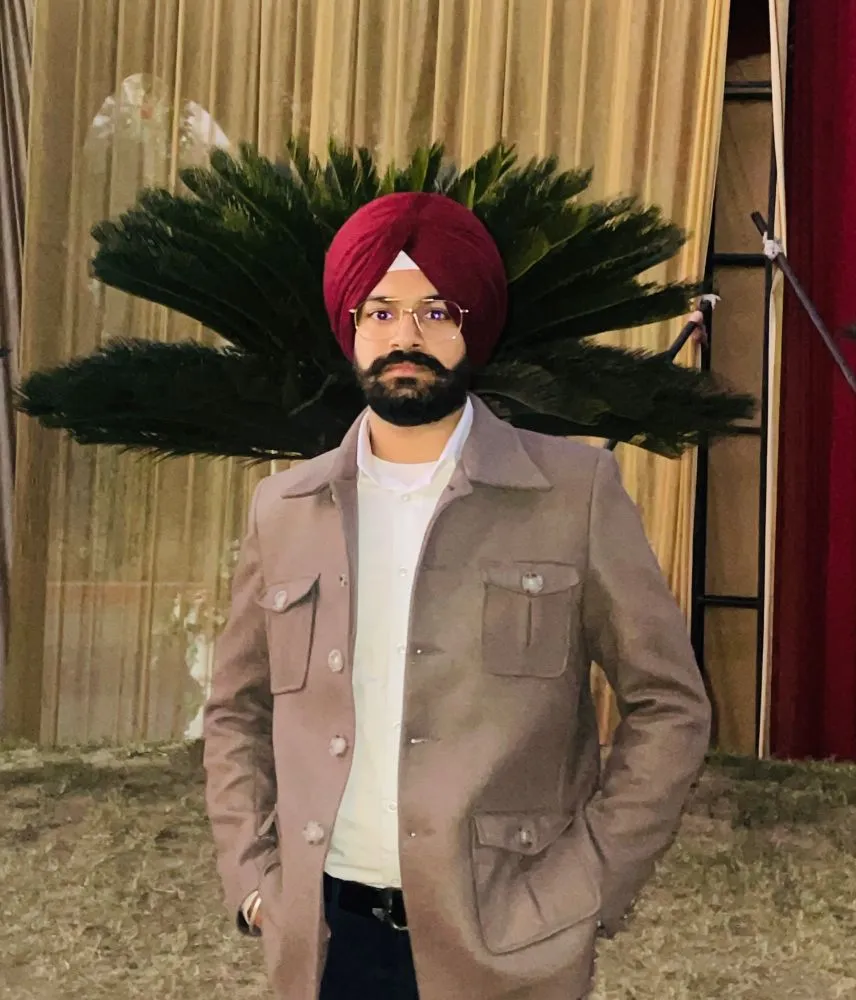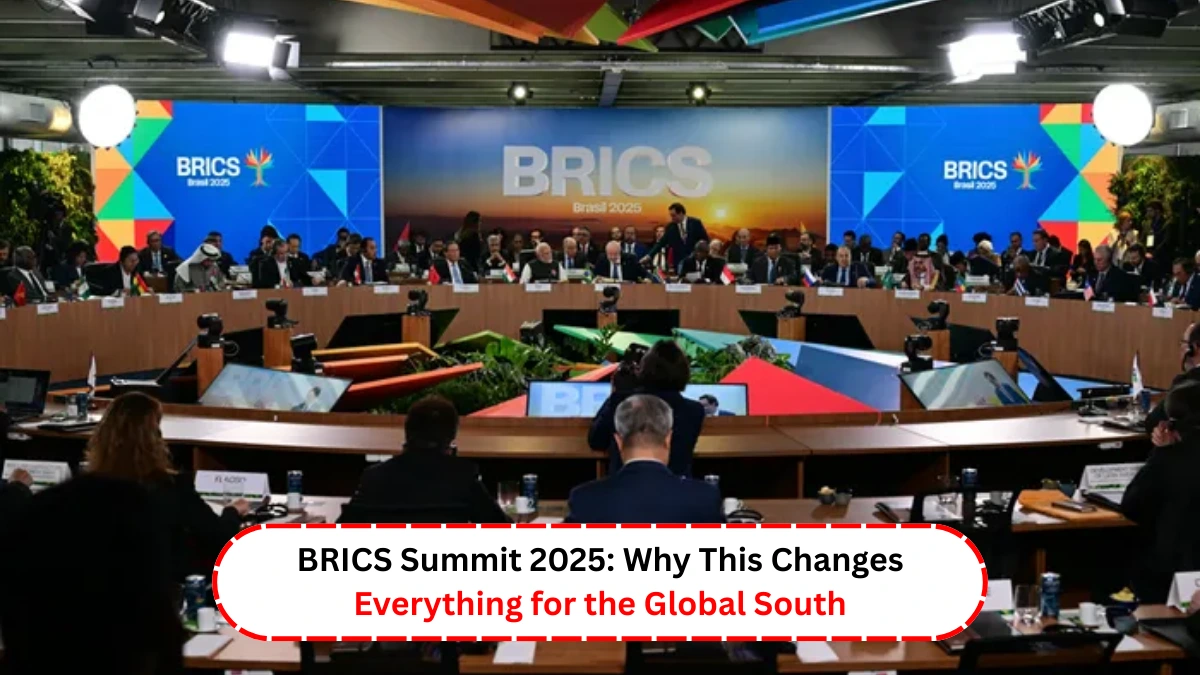The XVII BRICS Summit held in Rio de Janeiro made headlines this week. It was the first summit after the bloc’s expansion and ended with the Rio Declaration. The declaration has over 90 points and questions how the world is ruled today.
The summit theme showed clear intent to push Global South unity. BRICS+ now sees itself as more than just rising economies. It now acts as a global force pushing for fairness and sovereignty.
BRICS+ Now Represents the Global Majority
With 11 members and 11 partners, BRICS+ now speaks for over half the world’s people. This gives the group strong influence in global decisions.
The message from Rio was clear: developing countries are not side players anymore. They are ready to lead and shape the global agenda based on fairness and equality.
From Parliament to your local street, we track it all on our news website

The Rio Declaration: What It Calls For
One of the strongest points in the Rio Declaration is the demand for a reformed global system. It directly questions the role of institutions like the UN Security Council, IMF, and World Bank.
These bodies were formed after World War II. But many believe they no longer represent today’s world. BRICS+ members, especially Brazil, India, and African nations, were called key to any future reforms.
The declaration also strongly defended sovereignty. It opposed sanctions not approved by the UN Security Council. The goal is to stop powerful countries from using economic pressure on weaker nations.
BRICS+ Supports Countries Like Iran and Palestine
Iran’s presence at the summit was meaningful. It has long faced sanctions that affect its people. BRICS+ gave strong support to its right to self-development.
The bloc also addressed the conflict in Gaza. It condemned Israeli attacks on Iran and called for a ceasefire. It backed a two-state solution, in line with international law.
BRICS+ Pushes Back Against Tariffs and Dollar Dominance
A response to recent tariff threats by the United States was also clear. BRICS+ criticised unfair trade rules that hurt global economies. The bloc wants to reduce dependence on the US dollar.
Plans include:
- A BRICS Cross-Border Payment System
- A common digital currency framework
- A BRICS Multilateral Guarantee Agency
These steps show how serious the bloc is about economic independence.
The Role of the New Development Bank (NDB)
The New Development Bank continues to grow. It now focuses on:
- Green finance
- Sustainable infrastructure
- Digital development
Unlike Western banks, the NDB avoids forcing austerity policies on borrowers. Instead, it funds real projects across the Global South.
Digital and Tech Governance for Everyone
BRICS+ also talked about artificial intelligence and digital tools. It said tech rules must be fair, inclusive, and made with all countries at the table.
It also links to climate work, 5G, green energy, and health. Countries like South Africa, Brazil, China, and the UAE are already working together.
A Growing and Diverse Bloc with Clear Goals
BRICS+ now includes Indonesia, Egypt, Ethiopia, Iran, Saudi Arabia, and the UAE. New partners like Nigeria, Thailand, Kazakhstan, and Cuba show its growing global reach.
The bloc is not driven by ideology. Its common goal is to rebalance global power and make sure growth benefits everyone, not just the rich.
Related News:-
- Hilton College’s Bold Message to Parents
- Why Garden Route SPCA Stayed Silent for 10 Months
- Rand Water Maintenance to Disrupt Johannesburg Supply for 4 Days
- Kaizer Chiefs Prepare R10 Million Offer for Thalente Rhodes

Hi, I’m Amandeep Singh, a content writer at Ramnath Intercollage. I share updates on jobs, internships, and scholarships across South Africa using official and trusted sources. My aim is to make every post easy to read and helpful for anyone looking to apply.

